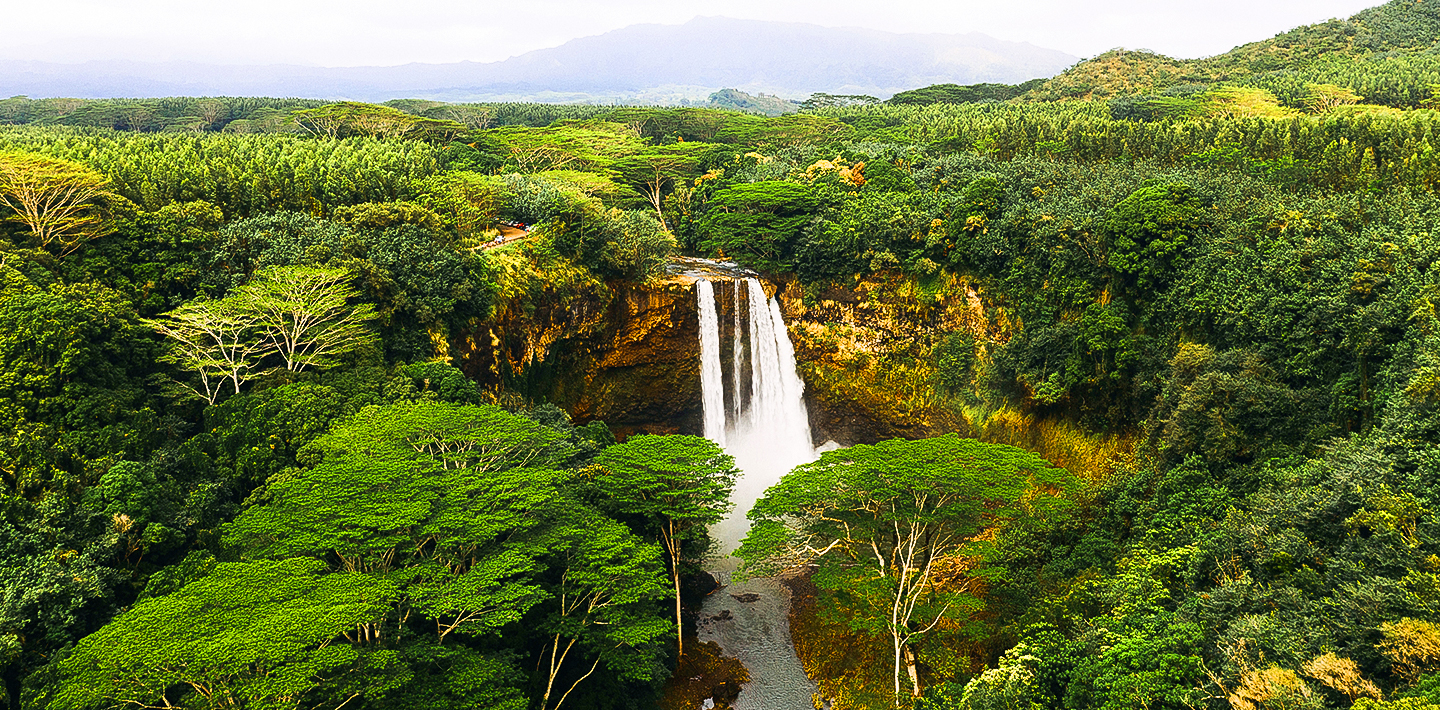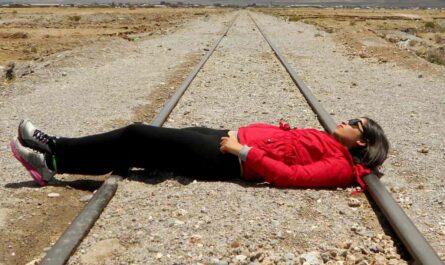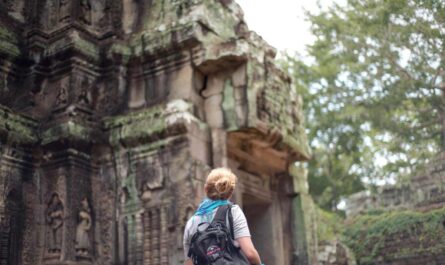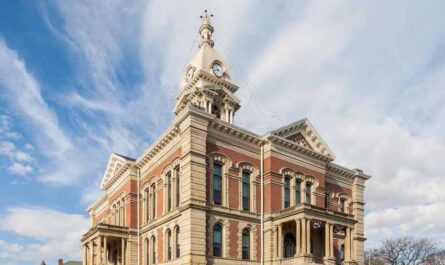What are some of the interesting facts about the Republic of the Congo, known colloquially as Congo-Brazzaville to distinguish it from its neighbor, the Democratic Republic of the Congo, which is a sovereign nation situated in Central Africa? Bordered by Gabon to the west, Cameroon and the Central African Republic to the north, the Democratic Republic of the Congo to the east and south, and the Atlantic Ocean to the southwest, Congo covers an area of approximately 342,000 square kilometers. In this article, I will talk about some interesting facts about the Republic of the Congo.
Interesting Facts About the Republic of the Congo: History, Culture, Travel
Its capital and largest city is Brazzaville, located on the Congo River. With a population of over five million people, the country is rich in biodiversity, featuring tropical forests, savannas, and diverse wildlife. The Republic of the Congo gained independence from France in 1960 and has since navigated various political and economic challenges. Despite its natural resource wealth, including oil, the country faces developmental hurdles, striving to achieve stability and economic growth for its citizens. Here are some interesting facts about the Republic of the Congo:
1. Natural Wealth and Cultural Heritage
The Republic of the Congo, often referred to as Congo-Brazzaville, stands as a gem in Central Africa renowned for its abundant natural resources and vibrant cultural heritage. Situated strategically in the heart of the continent, it boasts a diverse landscape that includes dense rainforests, expansive savannas, and the majestic Congo River. The country’s geographical diversity not only supports a rich tapestry of flora and fauna but also underpins its economic potential through industries such as forestry, mining, and agriculture. This natural wealth has been pivotal in shaping both the economy and the social fabric of the nation, providing resources crucial for development while also presenting challenges in sustainable management.
2. Brazzaville: A Dynamic Urban Hub
Brazzaville, the bustling capital city of the Republic of the Congo, epitomizes the fusion of history and modernity along the banks of the Congo River. Established as a colonial outpost, its streets are a testament to French colonial architecture blended with contemporary African influences. The city serves not only as the political center but also as a cultural and economic hub, pulsating with markets, government buildings, and cultural institutions that reflect the nation’s heritage. Beyond its historical roots, Brazzaville is a melting pot of cultures and languages, where traditional Congolese practices intertwine with cosmopolitan lifestyles, creating a dynamic urban mosaic.
3. Legacy of French Colonization
The imprint of French colonization on the Republic of the Congo is profound and enduring. As the official language, French is integral to governance, education, and commerce, fostering ties with Francophone nations globally. Beyond language, French influence is evident in the nation’s legal system, administrative structures, and societal norms, shaping its identity in the post-colonial era. While efforts to reclaim indigenous languages and cultural practices are ongoing, French remains a unifying force, bridging diverse ethnic groups and facilitating national cohesion amidst cultural diversity.
4. The Vitality of the Congo River
The Congo River, a lifeline of the nation and one of Africa’s most significant waterways defines both the landscape and the livelihoods of the Congolese people. Spanning thousands of kilometers, its waters support crucial transportation networks, linking remote communities to urban centers like Brazzaville. Moreover, the river’s hydroelectric potential contributes substantially to the country’s energy production, powering industries and households alike. Beyond its economic utility, the Congo River holds cultural and ecological importance, sustaining diverse aquatic ecosystems and providing a source of inspiration for art, folklore, and spiritual beliefs among local populations.
5. Ecological Treasure: Congo Basin Rainforest
Encompassing a substantial portion of the Republic of the Congo, the Congo Basin rainforest stands as a testament to nature’s magnificence and biodiversity. Second only to the Amazon in size, this vast expanse of tropical rainforest teems with a plethora of plant and animal species, many of which are endemic and endangered. Beyond its ecological significance, the rainforest serves as a carbon sink, mitigating global climate change impacts and regulating regional weather patterns. Efforts to conserve this natural treasure are crucial, balancing sustainable development with biodiversity preservation to ensure its enduring value for future generations.
6. Gorilla Sanctuary: Odzala-Kokoua National Park
Nestled within the Republic of Congo, the Odzala-Kokoua National Park stands as a sanctuary dedicated to the preservation of western lowland gorillas, offering a profound and immersive experience in responsible gorilla trekking. The park’s verdant expanses provide a natural haven where these majestic primates roam freely amidst dense rainforests and tranquil clearings. Visitors embark on guided journeys, led by knowledgeable local guides, navigating through lush foliage and across serene streams to encounter gorilla families in their natural habitat. The experience is not merely about witnessing wildlife but fostering a deep appreciation for conservation efforts that sustain these endangered species. Each trek is a voyage into the heart of biodiversity, where the sights and sounds of the forest envelop explorers in a sensory tapestry of life untouched by modernity.
7. Diverse Wildlife: Chimpanzees, Elephants, and More
The Republic of Congo boasts a rich tapestry of wildlife beyond its renowned gorilla population. In addition to western lowland gorillas, the country is home to diverse species including chimpanzees, elephants, bonobos, and a spectacular array of birdlife that paints the skies with vibrant colors. The dense rainforests and expansive savannas teem with life, offering researchers and nature enthusiasts alike a treasure trove of biological diversity to explore and study. Each species contributes uniquely to the ecological balance of the region, creating a harmonious ecosystem where each life form plays a crucial role in the intricate web of existence.
8. Unique Cultures and Languages: Vibrant Ethnic Tapestry
The Republic of Congo is a melting pot of over 60 distinct ethnic groups, each contributing to the country’s cultural mosaic with its own languages, traditions, and customs. From the Bakongo people of the south to the Teke communities in the north, and the Mbochi in the central regions, the diversity of traditions and beliefs forms a vibrant tapestry that reflects centuries of shared history and independent evolution. Language itself becomes a bridge to understanding, with each ethnic group preserving its linguistic heritage through oral traditions, storytelling, and everyday interactions that celebrate the uniqueness of Congo’s cultural fabric.
9. Mokissi Art: Wood Sculptures and Spiritual Depictions
Among the artistic treasures of the Republic of Congo are the Mokissi figures, wooden sculptures crafted by the Kongo people. These figures serve as tangible representations of spirits or ancestors, embodying a spiritual connection between the human and divine realms. Each sculpture is meticulously carved, often depicting human forms adorned with intricate patterns and symbols that convey deep spiritual meanings. The art of Mokissi not only showcases exceptional craftsmanship but also serves as a cultural beacon, preserving ancient beliefs and philosophies through tangible artistic expression that transcends time and place.
10. Animation Tradition: Studios and Acclaimed Works
The Republic of Congo has carved a niche in the world of animation with studios like “Les Studios La Géca,” known for producing acclaimed works that blend local narratives with universal themes. The animation tradition in Congo stands out for its unique storytelling techniques, vibrant visual styles, and narratives that resonate across cultural boundaries. From exploring folk tales to addressing contemporary issues, Congolese animation studios enrich the global animation landscape with fresh perspectives and artistic innovation. This burgeoning industry not only nurtures local talent but also amplifies Congo’s cultural voice on the global stage, bridging continents through the universal language of animated storytelling.
11. Music and Dance: Vibrant Cultural Expressions
In the Republic of Congo, music and dance form vibrant cultural expressions that resonate both locally and internationally. Genres like Soukous and Rumba have roots deeply embedded in Congolese traditions, characterized by rhythmic beats, melodic guitar riffs, and spirited vocals that capture the essence of daily life, love, and societal narratives. These musical forms serve not only as entertainment but also as conduits for storytelling, transmitting historical events and societal values across generations. Congolese dance, characterized by energetic movements and intricate footwork, accompanies these musical rhythms, creating a dynamic fusion of sound and movement that celebrates the country’s rich cultural heritage.
12. Independence from France: Historical Milestone
The Republic of the Congo achieved independence from French colonial rule on August 15, 1960, marking a significant milestone in its history. The journey to independence was a culmination of decades of resistance, political activism, and negotiations that paved the way for self-governance. This newfound sovereignty brought with it opportunities and challenges as the young nation sought to assert its identity on the global stage while navigating the complexities of nation-building in a post-colonial era. Independence Day continues to be celebrated annually, serving as a reminder of the country’s resilience and determination to forge its path forward amidst a backdrop of historical legacy and cultural diversity.
13. Political Landscape: Dynamics of Governance
The Republic of the Congo’s political landscape is characterized by a multi-party system, reflecting a diverse array of political ideologies and affiliations. Since gaining independence, the country has experienced periods of political stability as well as challenges to democratic processes, including issues of governance transparency and electoral integrity. Political participation is integral to the nation’s democratic evolution, with ongoing efforts to strengthen institutions, uphold the rule of law, and promote inclusive governance that represents the interests of all citizens. The political dynamics underscore the complexities of balancing national unity with diverse regional identities and aspirations, shaping the socio-political fabric of contemporary Congolese society.
14. Economic Reliance on Resources: Opportunities and Challenges
The Republic of Congo’s economy is heavily reliant on natural resource extraction, particularly oil, timber, and minerals, which contribute significantly to its GDP. However, this dependence poses challenges such as environmental sustainability, resource depletion, and socio-economic inequalities. The extraction industries have played a pivotal role in shaping the country’s economic landscape, driving infrastructure development and employment opportunities while also necessitating careful management to mitigate environmental impacts and ensure equitable distribution of wealth. Diversification efforts are underway to reduce reliance on extractive industries and promote sectors like agriculture, tourism, and renewable energy, fostering a more resilient and inclusive economy for future generations.

15. Sustainable Development Efforts: Navigating Toward a Balanced Future
In response to economic and environmental challenges, the Republic of Congo is actively pursuing sustainable development initiatives aimed at balancing economic growth with environmental stewardship and social equity. These efforts encompass policies and practices that promote the conservation of biodiversity, sustainable land use, and renewable resource management. Initiatives are underway to enhance education and skills development, empower local communities, and foster innovation in green technologies. By embracing sustainable development principles, the country aims to safeguard its natural heritage, enhance resilience to global challenges, and create opportunities for inclusive economic growth that benefit all segments of society.
16. The Importance of Hydropower: Harnessing the Congo River
The Congo River, with its vast network of tributaries and abundant water resources, holds immense potential for hydropower generation in the Republic of Congo. As one of the largest rivers in the world by discharge volume, it presents a significant opportunity to generate clean and renewable energy to meet the country’s growing electricity demand.
Hydropower projects, such as the Inga dams, aim to capitalize on this potential, providing a sustainable energy source that can reduce dependency on fossil fuels and contribute to regional energy security. However, the development of hydropower must be balanced with environmental considerations to mitigate impacts on aquatic ecosystems and local communities dependent on the river for livelihoods and cultural practices.
17. Deforestation Threat: Conservation Challenges in the Congo Basin
The Congo Basin rainforest, one of the Earth’s most biodiverse ecosystems, faces severe threats from deforestation driven by agricultural expansion, logging, and infrastructure development. This rampant deforestation jeopardizes biodiversity, disrupts vital ecosystem services, and exacerbates climate change through carbon emissions. Local communities reliant on forest resources for food, medicine, and cultural practices also suffer from the loss of their natural habitats. Conservation efforts, including protected area management, sustainable forestry practices, and community-based initiatives, are crucial to mitigating deforestation and preserving the Congo Basin’s ecological integrity for future generations.
18. Ebola Outbreaks: Public Health Challenges
The Republic of the Congo has grappled with sporadic outbreaks of the Ebola virus, highlighting the country’s vulnerability to infectious diseases and underscoring the importance of robust healthcare infrastructure. Ebola outbreaks pose significant public health challenges, requiring rapid response mechanisms, healthcare capacity building, and community engagement to contain the spread of the virus and mitigate its impact on affected populations. Strengthening healthcare systems, improving disease surveillance, and enhancing public health preparedness are essential components in safeguarding the well-being of Congolese citizens and preventing future outbreaks.
19. Social Issues: Addressing Inequality and Poverty
Poverty, limited access to healthcare and education, and social inequality persist as significant challenges in the Republic of Congo. Despite economic growth driven by natural resource extraction, many communities continue to face socio-economic disparities that hinder their ability to access basic services and opportunities for upward mobility. Addressing these social issues requires comprehensive strategies that prioritize inclusive economic growth, equitable distribution of resources, and targeted interventions to empower marginalized populations, particularly women and youth, through education, vocational training, and social welfare programs.
20. Education Initiatives: Empowering Through Knowledge
Efforts are underway in the Republic of Congo to improve access to quality education, particularly for girls and women who historically face barriers to learning. Education initiatives aim to enhance literacy rates, expand educational infrastructure, and promote gender equality in schools through targeted policies and partnerships with international organizations. By investing in education, the country seeks to equip its youth with the skills and knowledge necessary to contribute meaningfully to socio-economic development, strengthen civic engagement, and foster a more inclusive society where every individual has the opportunity to realize their full potential.
21. The Importance of Family: Pillar of Congolese Society
Family holds a central and revered position within Congolese society, serving as the cornerstone of social structure and identity. Strong social bonds and traditions of respect for elders characterize familial relationships, where extended families often live nearby, fostering a sense of community and collective responsibility. Families play pivotal roles in transmitting cultural values, traditions, and religious beliefs to younger generations, ensuring continuity and preservation of Congolese heritage. Family gatherings and celebrations are cherished occasions that strengthen bonds and reinforce the interconnectedness of communities, reflecting the resilience and warmth that defines the Congolese family unit.
22. Cuisine with French and African Influences: Culinary Delights
Congolese cuisine is a delectable fusion of French culinary influences with traditional African ingredients, resulting in a rich tapestry of flavors and dishes that reflect the country’s cultural diversity. Staple foods such as saka saka, a hearty meat stew simmered in flavorful spices, and fufu, a smooth dough made from plantains or cassava, highlight the creativity and resourcefulness of Congolese cooks. French techniques add finesse to local ingredients, creating a gastronomic experience that celebrates both heritage and innovation. Dining in Congo is not just about nourishment but a celebration of culinary artistry that honors the legacy of cross-cultural exchange and the vibrant flavors born from it.
23. Football (Soccer): A National Passion
Football, or soccer, transcends sport to become a unifying force and national passion in the Republic of Congo. From bustling urban neighborhoods to rural villages, the game captivates hearts and minds, uniting people of diverse backgrounds and social divides under a common banner. Football clubs and tournaments serve as focal points for community pride and solidarity, offering young athletes pathways to success and recognition on national and international stages. Beyond its competitive nature, football fosters camaraderie, teamwork, and discipline among players and fans alike, embodying the spirit of resilience and aspiration that defines Congolese sporting culture.
24. Fashion and Textiles: Expressions of Creativity
Congolese fashion is a vibrant tapestry of colors, patterns, and styles that reflect the creativity and cultural identity of its people. Vibrant fabrics, such as the iconic Congolese wax prints, showcase intricate designs and motifs that tell stories of heritage and personal expression. Traditional attire, adorned with bold accessories and embellishments, distinguishes ceremonial occasions and everyday wear, embodying elegance and pride in cultural heritage. Fashion designers and artisans across the country draw inspiration from local traditions and global trends, blending contemporary influences with time-honored techniques to create unique clothing that celebrates Congo’s rich cultural tapestry.
25. Religious Diversity: Harmony in Faith
The Republic of Congo embraces religious diversity, with Christianity predominating as the majority religion, encompassing Catholicism and Protestantism. Religious practices and traditions play significant roles in shaping daily life, societal norms, and cultural values across communities. Alongside Christianity, a notable minority of Muslims contribute to the country’s religious mosaic, fostering interfaith dialogue and mutual respect among followers of different beliefs.
Religious institutions serve as pillars of community support, providing spiritual guidance, social services, and educational opportunities that contribute to the country’s social cohesion and collective identity. In the tapestry of Congolese society, religious diversity reflects a commitment to pluralism and mutual understanding, enriching the cultural fabric with shared values of compassion, humility, and solidarity.
26. Traditional Beliefs: Animistic Influences
Traditional animistic beliefs continue to exert influence over aspects of Congolese culture and religious practices, intertwining spiritual beliefs with daily life and rituals. These beliefs are rooted in the reverence for nature, ancestral spirits, and sacred sites, shaping ceremonies, healing practices, and communal celebrations. Elders and spiritual leaders play crucial roles as custodians of traditional knowledge, guiding communities in spiritual matters and maintaining cultural continuity through oral traditions and symbolic rituals. Despite the spread of Christianity and Islam, traditional beliefs persist as integral components of Congolese identity, fostering a deep connection to the natural world and ancestors that underpin societal harmony and resilience.
27. Artistic Expression: Celebrating Cultural Heritage
Congolese artists exhibit exceptional talent across diverse art forms, from painting and sculpture to music and dance, reflecting the country’s rich cultural tapestry and creative spirit. Traditional art forms, such as intricate wood carvings and vibrant textiles, blend with contemporary influences to produce dynamic and expressive works that resonate locally and globally.
Painters capture the essence of daily life, landscapes, and historical narratives with vivid colors and evocative brushstrokes, while sculptors carve intricate statues that embody spiritual beliefs and ancestral wisdom. Music and dance further amplify artistic expression, serving as vehicles for storytelling, cultural preservation, and communal celebration, showcasing Congo’s enduring artistic legacy and its capacity to inspire and provoke thought.
28. Ecotourism Potential: Exploring Nature’s Bounty
The Republic of Congo holds vast potential for ecotourism, drawing nature enthusiasts and conservation advocates alike to its pristine landscapes and diverse wildlife habitats. With extensive rainforests, savannas, and river systems, the country offers unparalleled opportunities for responsible travel experiences that promote wildlife conservation and support local communities. Visitors can embark on guided safaris, birdwatching expeditions, and river cruises to encounter iconic species such as gorillas, elephants, and rare bird species in their natural habitats.
Sustainable tourism practices ensure minimal environmental impact while contributing to local economies through employment, community initiatives, and environmental education programs. As a leading destination for ecotourism in Central Africa, the Republic of Congo exemplifies the harmonious coexistence of nature and tourism, offering travelers transformative experiences that foster appreciation for biodiversity and cultural diversity.
29. Challenges and Hope: Navigating Forward
Despite facing socio-economic and environmental challenges, the Republic of Congo remains resilient, buoyed by its abundant natural resources, cultural wealth, and determined population. Challenges such as poverty, healthcare disparities, and environmental sustainability require concerted efforts and strategic initiatives to overcome. However, the country’s rich resource base, including oil, minerals, and agricultural potential, presents opportunities for sustainable development and economic diversification.
Investment in education, healthcare infrastructure, and social welfare programs aims to improve the quality of life and empower communities, fostering a brighter future for all Congolese citizens. With a spirit of resilience and optimism, Congo navigates forward, leveraging its strengths to address challenges and create pathways to prosperity and stability.
30. A Nation on the Rise: Striving for Excellence
The Republic of Congo is emerging as a nation poised for economic growth, enhanced social welfare, and increased global influence. With strategic investments in infrastructure development, energy production, and industrial diversification, the country aims to strengthen its position as a regional economic hub and attract foreign investment. Efforts to improve governance, transparency, and accountability are pivotal in promoting inclusive growth and ensuring equitable distribution of resources. Health books, guides, exercises, habits, Diets, and more
Internationally, Congo seeks to play a more prominent role in global affairs, advocating for sustainable development, climate action, and peacebuilding initiatives. As a nation on the rise, Congo embraces its potential to shape a prosperous future grounded in resilience, innovation, and a steadfast commitment to advancing the well-being of its people and safeguarding its natural heritage for generations to come.



